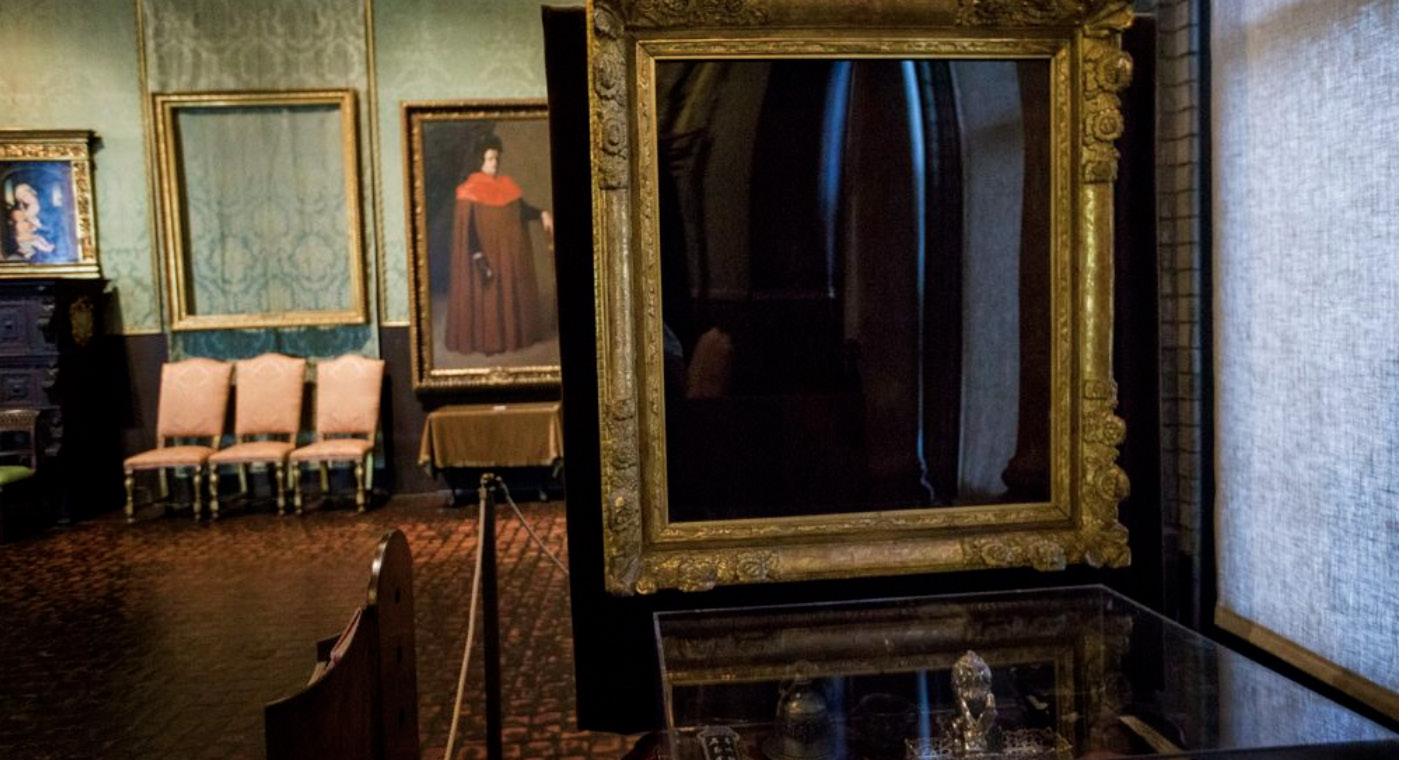
7 minute read
THEY STOLE MY “NO”
By Pastor Mark Sowersby
The empty frame of Vermeer’s “The Concert” in the Dutch Room of the Isabella Stewart Gardner Museum. (Jesse Costa/WBUR)
Advertisement
In the city of Boston, the capital of Massachusetts, resides the Isabella Stewart Gardener Museum, home to one of the most notorious art thefts ever.
Over thirty years ago two individuals impersonated police officers, and stole thirteen priceless pieces of art. They were all one of a kind, revered for their beauty and composition, pieces which can never be replaced or duplicated. If you were to go and take a tour of the museum today, you would find empty frames in the space where the masterpieces once hung. The empty frames are a ghostly reminder of what once was. Through years of investigation the museum holds out hope that these wonderful pieces of art will be returned to their rightful place – in the museum for all visitors to enjoy.
Priceless pieces not only hang on the walls of art museums; they also hang in the souls of people. The beauty of eyes that sparkle, smiles that light up a room, or wrinkles on the face of someone that expresses the wisdom of life. There is also the inner beauty of a person’s confidence, compassion, and humility. Just like the priceless pieces of art that once hung in the museum were stolen, so too can the attributes of a person’s life, their value and beauty be taken. They too are left with a void, an empty space where their value and beauty once hung.
When items are stolen that one has worked so hard to protect, there are often feelings of anger, confusion, and blame. Reliving the event over and over and asking yourself, “What could I have done better?” or “How could I have been so careless or foolish?” The reason the art was stolen that night in Boston was because of the pieces’ value and importance. What made that art so valuable and important was the one who created it – the master who put brush to canvas, the sculptor who casts and creates a masterpiece that would inspire, compel, or enlighten, bringing the viewer to tears, laughter, or reflection.
I believe we have all been created by God, who on a canvas full of love through the brush strokes of God’s Word, formed you and I – God’s masterpieces. That we are each God’s masterpiece gives us value and importance. Genesis 1:31 tells us, “And God saw all that He had made, and it was very good...” As we were created to be a masterpiece, it also makes us a prime target for a thief. There is one who hates all that God has created. The first half of John 10:10 reveals the thief’s purpose, “The thief comes only to steal and kill and destroy,” Just as thieves may not get all that
they want in their first attempt, which is why we have all heard stories of thieves returning to steal from the same place over and over, our enemy keeps coming back to steal the most valuable and important things from our lives until we are left empty, broken, and full of shame.
As a child of abuse, my abuser groomed me to never say “no.” I was manipulated and brainwashed. “No” was never an option.
I was taught to believe it was wrong for me to say “no.” I was made to feel shame for saying “no.” I felt guilty for saying “no.” I believed that people would abandon me, or be angry with me, that it would be all my fault if I said, “no.” After my “no” was stolen, I was left feeling broken and powerless.
Even into my early adulthood, years after the physical abuse ended, it was hard for me to say “no.” Every time I said “no”, I felt anxiety and guilt. I still believed people would be angry with me. Saying “no” still felt like I had done something wrong.
As a result, I said yes, many times when I should have said “no.” Especially when people came to me in excitement and shared decisions or expectations for my life.
Sometimes, I wanted to scream “no”!
But I was too afraid; it was just too hard to say “no.” The feelings of awkwardness and disappointment I felt from others, when I did try to say “no”, was a weight on me. It brought back all the emotions and feelings of being helpless. The “no” that I did express always came from a place of hurt, a place of anger, frustration, or spite. I had to learn that a “no” could be healthy. “No” is honest. It places limitations, respects boundaries, and enables self-care. I remember my first big “no.” My past was trying to own me; the brokenness was trying to control me; and the lies were whispering to me, trying to keep me bound. My heart cried out Psalm 27:7-8 “Hear, O Lord, when I cry with my voice! Have mercy also upon me and answer me. When You said, “Seek My face,” my heart said to You, “Your face, Lord, I will seek.” Finally, with all that was in me I said, “no”!
That “no” released the helplessness and restored freedom, power, strength, and confidence. A healthy “no” gave my “yes” a deeper and more committed ring and made my “yes” even sweeter.
I no longer live with the inability to say “no.” Now I can say “no” because I have learned, a “no” is just as good as a “yes.”
When I found my voice and my “no” was “no” and my “yes” was “yes”; my “yes” shone like a diamond that sparkled. The “yes” became even more valuable. Simply being able to say “no” allowed my “yes” to be expressed with confidence and grace.
I now live my life in the promises of God that are “yes” and “amen”. “For no matter how many promises God has made, they are “Yes” in Christ.
So, through him the “Amen” is spoken by us to the glory of God. 2 Corinthians 1:20
*Scripture is from the New King James Version and the New International Version. ABOUT THE AUTHOR

Pastor Mark Sowersby has a testimony to share about how he was set free from a nightmare of abuse and years of suffering. Condemnation, shame, and guilt were replaced with forgiveness, joy, and life in abundance.
Mark’s ministry, Forgiving The Nightmare, is on mission to help those who have experienced hurt, abuse, and pain to find freedom and peace through God’s love and the many facets of forgiveness.
His testimony, told to live audiences, on television, and through his book, is a powerful reflection of the love of our Savior. Since 2019, he’s been sharing his story around the world of how he went from hurting to health, from death to life.
Mark’s book “Forgiving The Nightmare,” begs the questions “How do you forgive when you’ve been wounded deeply?”
“How do you move past the pain that keeps you up at night, leaves you isolated, untrusting, and afraid? How can you possibly forgive them, especially when they don’t deserve forgiveness?”
Pastor Mark Sowersby shares his testimony with his ministry and book by the same name, “Forgiving The Nightmare.” Get it now.










